Women might have the desire to get married and live a happy life with their husbands, but does marriage actually give them everything, that they dreamed of? Contrary to popular belief, many a time, it has been seen in studies and research alike, that men benefit more from marriage than women.
Let’s find out the pros and cons of marriage for a man and what marriage means to a man.
Is Marriage Worth It for Women Or Do Men Gain More From Marriage?
A casual look at how marriage is represented in popular culture may lead one to conclude that ending up at the altar is the ultimate female desire. Wedding magazines are aimed almost exclusively at brides, not grooms. Reality TV shows highlight Bridezillas, not Groomzillas, and The Bachelor, in which multiple women vie for a ring, is a rating juggernaut.
The central attraction in the pageant of the average wedding is reserved for the bride’s dress, while the groom’s attire receives little billing. Pop culture queen Beyoncé herself has famously admonished men that if they like it, then they should put a ring on it
Men, on the other hand, are often depicted as commitment-phobic, having to be conned or whipped into marriage, or dragged to the altar against their deeply promiscuous nature, which abhors long-term monogamy.
The notion of a “midlife crisis,” during which men are bound to jettison their old wives for a new, younger trophy model is also a familiar cultural trope.

“Women have always been more critical of marriage than men. The great mysterious irony of it is – at least it’s the stereotype – that women want to get married and men are trying to avoid it. Marriage doesn’t benefit women as much as men, and it never has. And women, once they are married, become very critical of marriages in a way that men don’t.” – Elizabeth Gilbert
Benefits of Marriage: Do men benefit more from marriage than women?
Marriage, we have been led to believe, is a natural habitat for women, but a stifling cage for men. Thus goes the popular fantasy. However, in the real world of data, things shake out quite a bit differently.
First, confounding the view of marriage as the female heaven and haven is the fact that marriage actually appears to benefit men more than it does women.
Research has shown that the “marriage benefits“—the increases in health, wealth, and happiness that are often associated with status—go disproportionately to men. Married men are better off than single men. Married women, on the other hand, are not better off than unmarried women.
Second, in contrast to the myth that marriage is a woman’s ultimate and sacred fulfillment is the reality that roughly two-thirds of divorces are initiated by women.
This is true not only for the young and hip: A recent AARP survey of 1147 men and women ages 40-79 who experienced a divorce in their 40s, 50s, or 60s, found that 66 percent of women said they initiated the split.
“Men marry women with the hope they will never change. Women marry men with the hope they will change. Invariably they are both disappointed.” – Albert Einstein
New research suggests that there is something unique to marriage—other than the trials of getting along day-to-day with another person—that may make it less than hospitable to women.
A recent paper by Stanford sociologist Michael J. Rosenfeld analyzed longitudinal data from the How Couples Meet and Stay Together survey—a survey of a nationally representative sample of 2,262 adults in heterosexual relations followed from 2009 to early 2015.
The results revealed an intriguing pattern: As expected, women initiated roughly two-thirds (69 percent) of the breakups in heterosexual marriages.
However, the gendered trend in relationship breakups held only for marriages and not for other non-marital unions. Moreover, women in marriages, but not in other relationships, reported lower levels of satisfaction.
According to Rosenfeld, these data suggest that the tendency for women to initiate breakups is not an inherent feature of male-female relationships.
Rather, it is a feature of male-female marriage. This finding appears to provide support for the notion that women experience the institution of marriage as oppressive, in large part because it emerged from and still carries the imprint of a system of female subjugation.
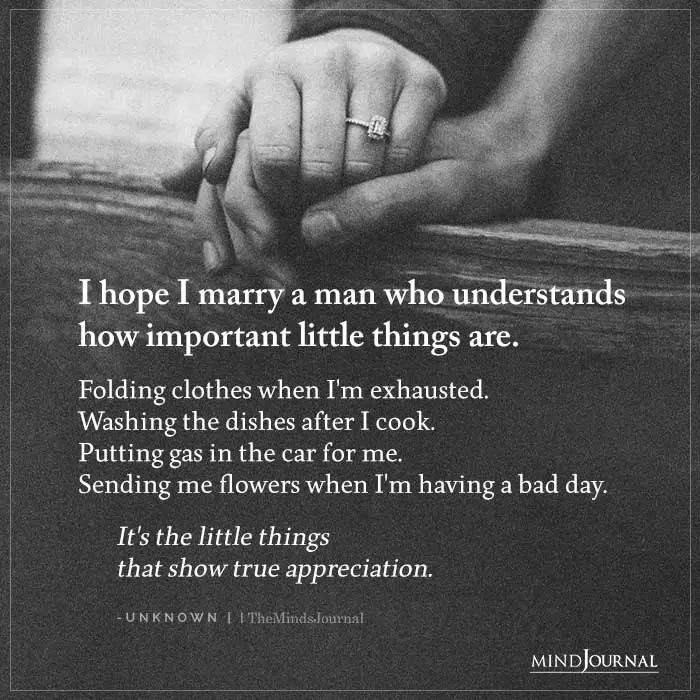
Rosenfeld notes that marriage law was originally based on the common law assumption that the wife was the husband’s property. The last vestiges of this common law tradition of legally subordinating wives to their husbands, such as allowing spousal rape, were eliminated in the United States only in the late 1970s.
Most women in the U.S. still take the surnames of their husbands when they marry, a practice required by law in many states until the 1970s.
Just as we cannot maintain grand ancient structures without contending with the limitations of ancient building materials, so it is difficult to sustain old traditions without keeping the old worldviews and habits from which they had emerged.
The ghosts of female subjugation haunt the halls of contemporary marriage, to the detriment of married women. This is an intriguing idea, but doubts remain.
First, causality is difficult to establish in the absence of true controlled experimentation. In other words, since we cannot assign people randomly to married and unmarried groups at the outset, any difference between the groups in outcome may be the result of selection, rather than treatment, effects.
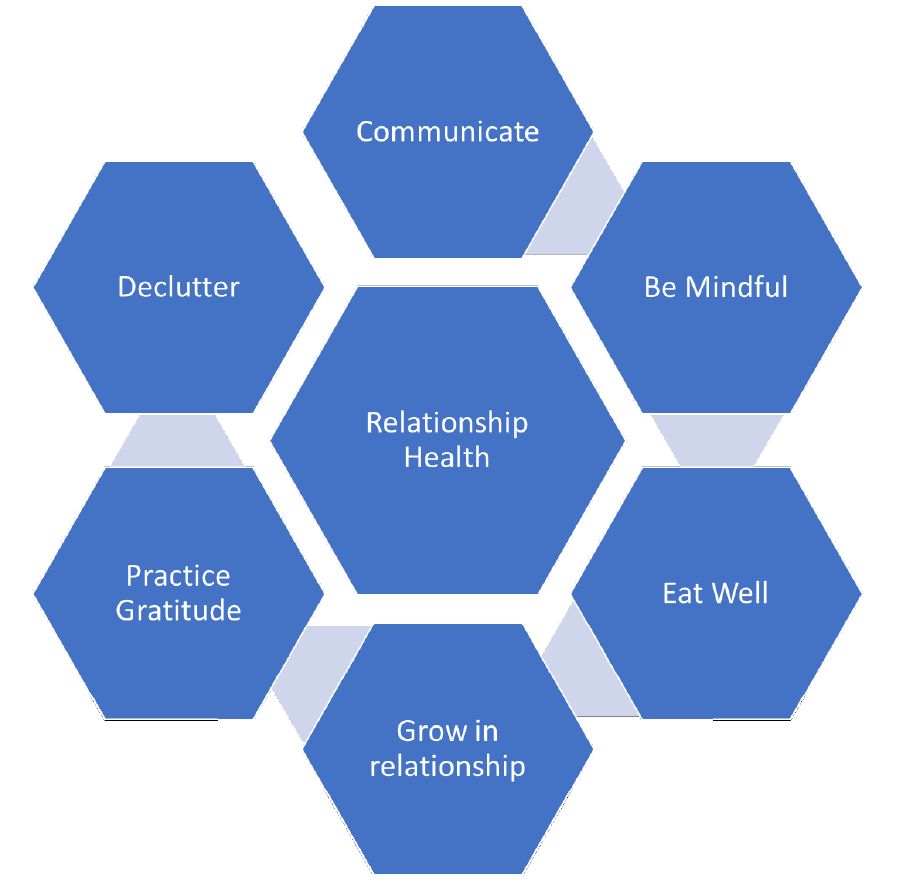
Read: The 9 Most Overlooked Threats To A Marriage
For example: If married women are more likely to be dissatisfied, it may be because the marriage made them so (treatment effect) or because dissatisfaction-prone women are more likely to choose marriage (selection effect).
People’s expectations—a variable not measured in Rosenfeld’s data—may also play a role in relationship satisfaction. If the culture sets women’s expectations for marriage high and men’s low, then the reality of marriage, in which men benefit more, may elicit increased satisfaction in men—“This is much better than I expected”—and decreased satisfaction in women.
“WE MUST REDISCOVER THE DISTINCTION BETWEEN HOPE AND EXPECTATION.” – IVAN ILLICH
Moreover, while Rosenfeld’s work may shed light on the “push” side of the decision to leave, the equation he outlines is probably incomplete as it neglects the “pull” side.
In general, life decisions are multiplied determined. Internal states such as marital satisfaction are likely to be weighed in the decision-making process against external variables such as societal attitudes about divorce, or the ability to maintain contact with children and financial security after divorce. Indeed, existing data attests to the importance of such external pull factors in shaping the decisions of both men and women.
For example, the AARP survey pointed to the fact that men more often decided to stay in a bad marriage out of fear of losing touch with their children. These are not unjustified fears, as fathers often experience decreased levels of contact with their children post-divorce.
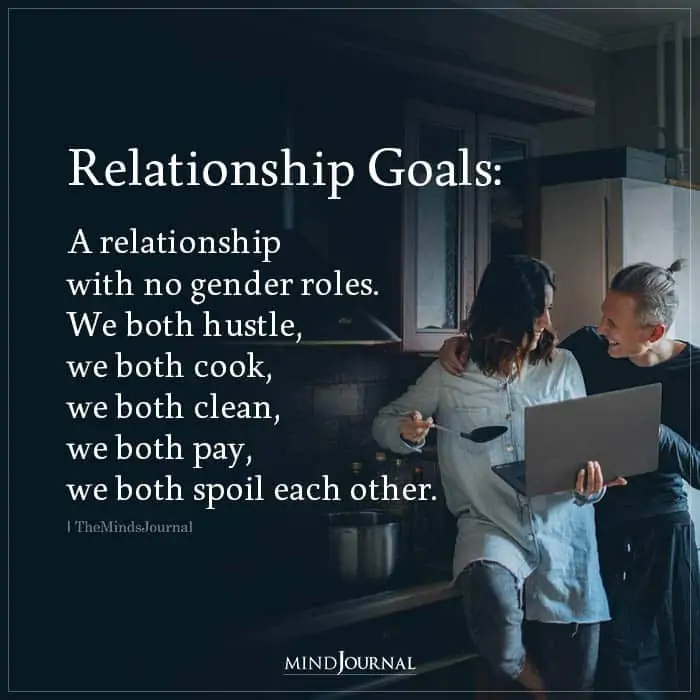
Conversely, an unsatisfied woman’s decision to leave may depend in part on her employment status. For example, Ohio State University’s Liana C. Sayer and her colleagues have provided evidence to suggest that unsatisfied women are much more likely to leave if they are employed.
Read: 8 Warning Signs You Are Stuck In A Loveless Marriage
At the end of the day, the accumulating data paint a picture of marriage as complex commerce in which women may often play a paradoxical role: They work harder for a smaller share of the benefits—which may explain why, while they may often be more eager to get into a marriage, they are often also more eager to get
Just because it’s women, that does not always mean marriage is the be-all and end-all for them. The perception that marriage means the end of the “good life” for men is utter nonsense, as they are likely to gain more from marriage than women.
Check out this video below which talks about how men gain more from marriage than women:
We hope you were able to learn the pros and cons of marriage for a man and what marriage means to a man. Share your thoughts on the benefits of marriage in the comments below.
Written By Noam Shpancer Originally Appeared In Psychology Today
Frequently Asked Questions (FAQs)
Who benefits the most from marriage a man or a woman?
Marriage, we have been led to believe, is a natural habitat for women, but a stifling cage for men. But often men benefit more from marriage and there are fewer benefits of marriage for a woman.
How does marriage benefit a woman?
Is marriage worth it for a woman? Well some women who are in healthy and functional marriages benefit from it where are some women don’t.
What can a man benefit from dating a woman?
The pros and cons of marriage for a man or dating a woman can be loyal, support and being taken care of.

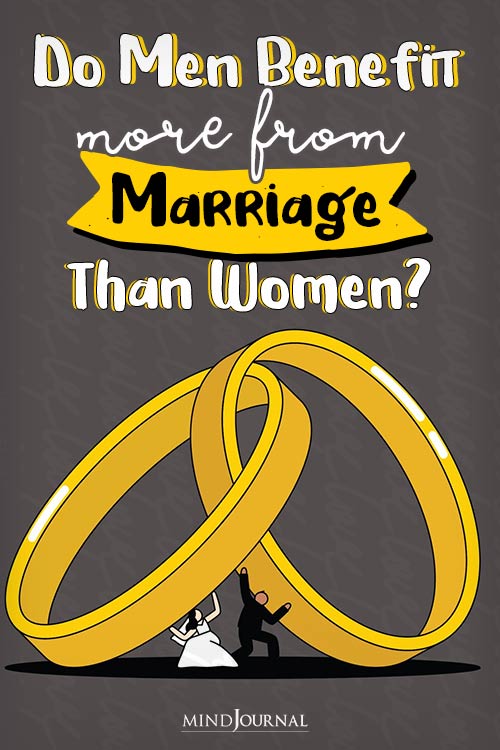
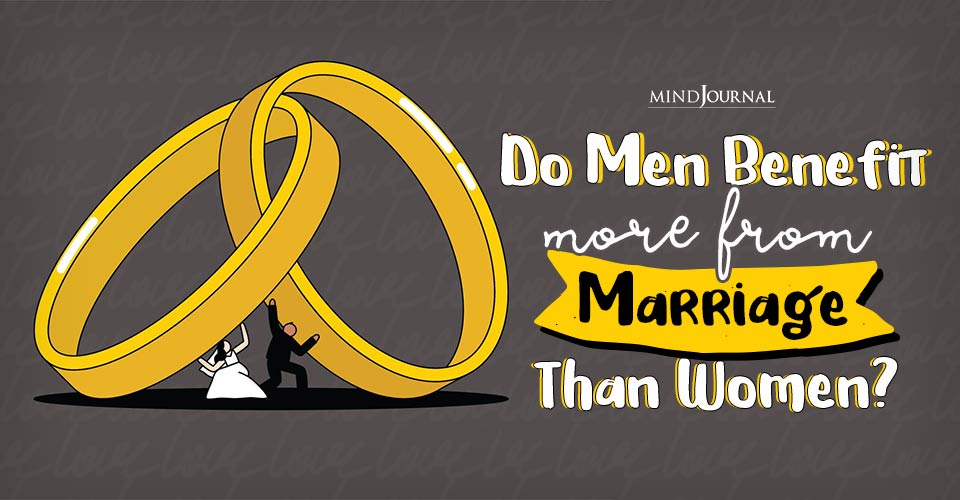

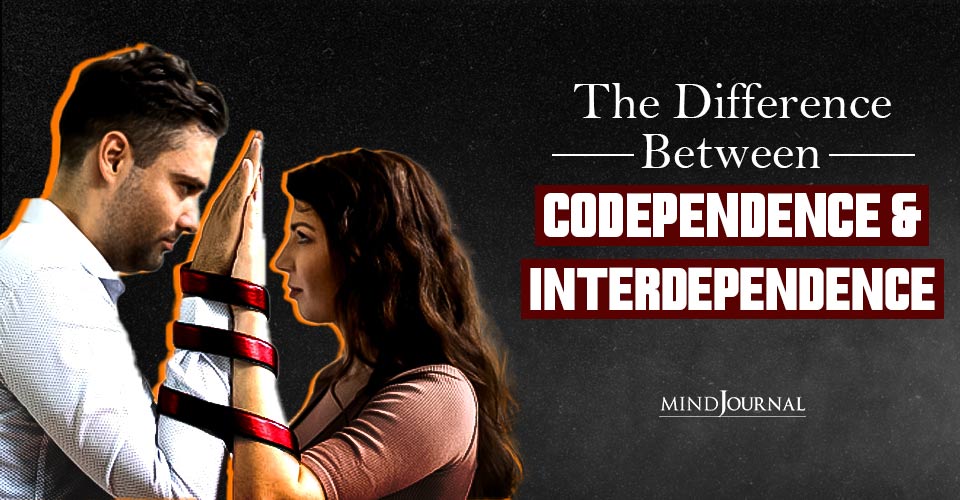


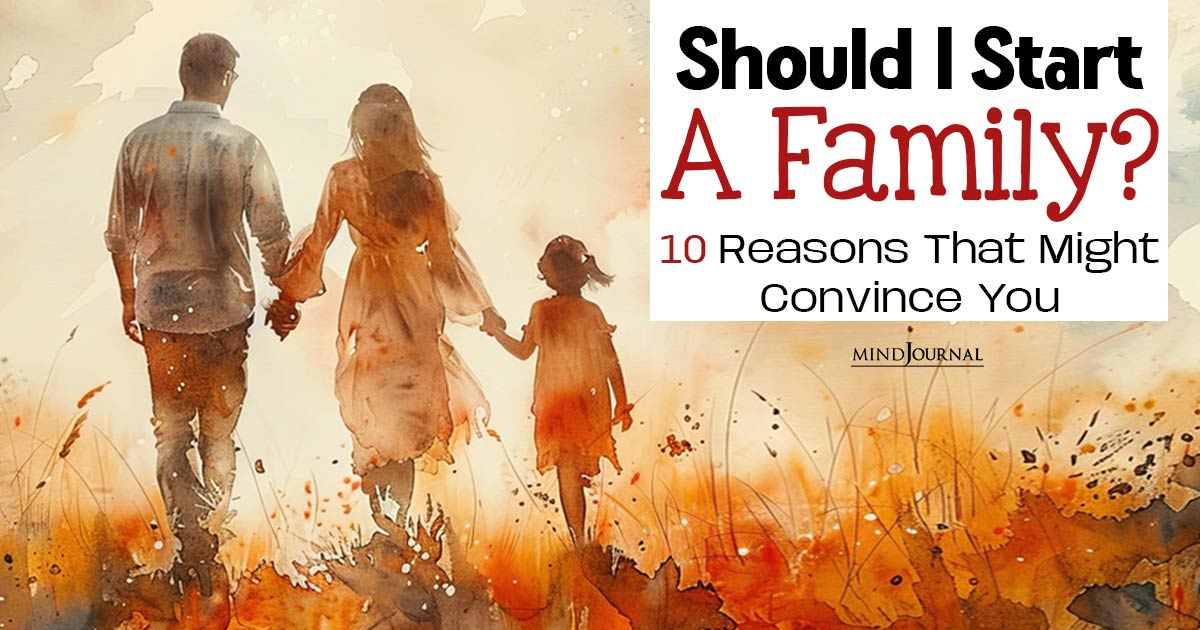
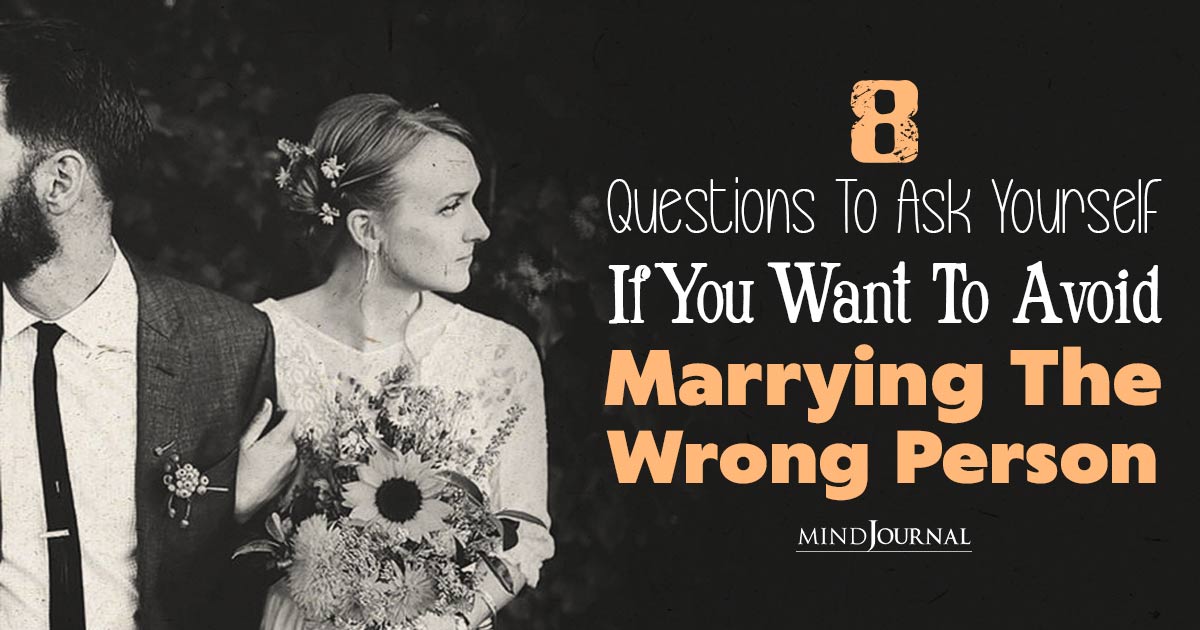
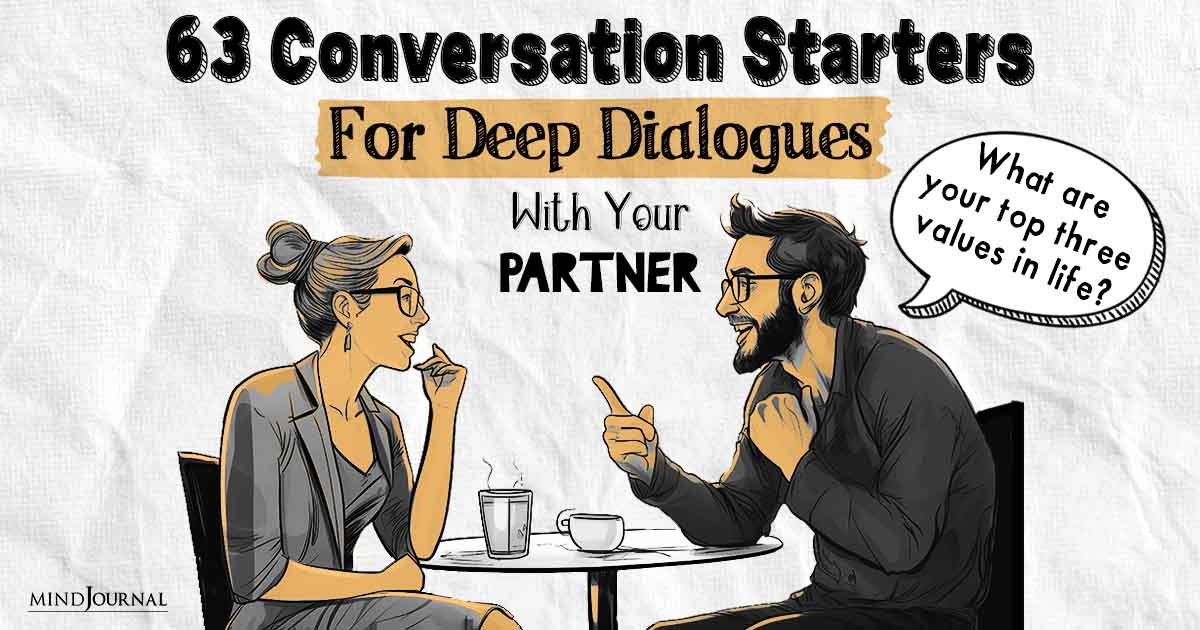
Leave a Reply
You must be logged in to post a comment.